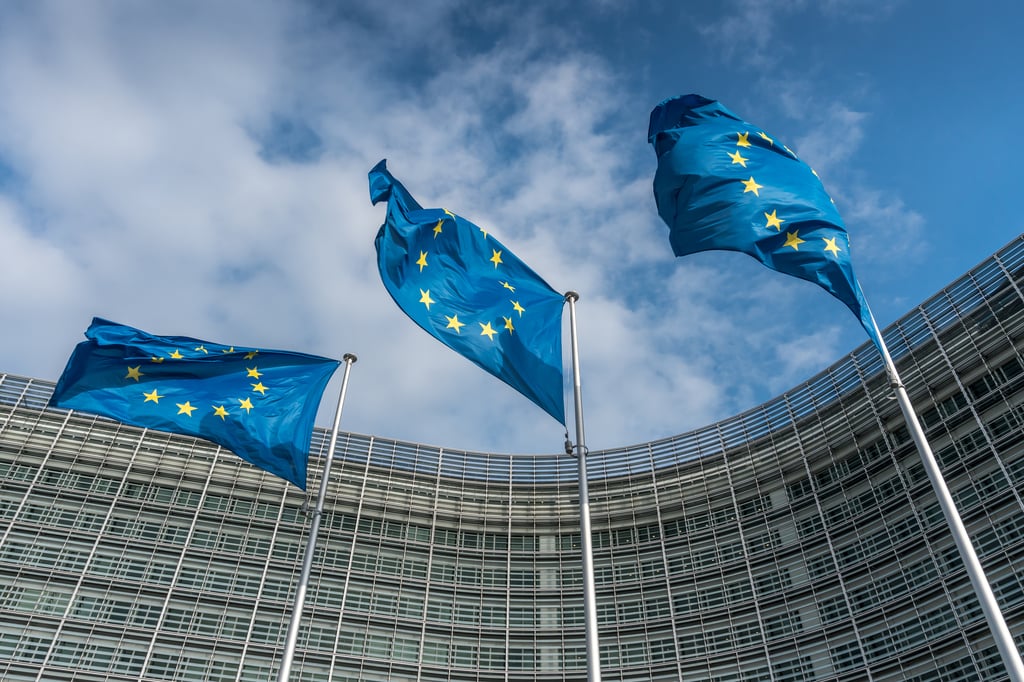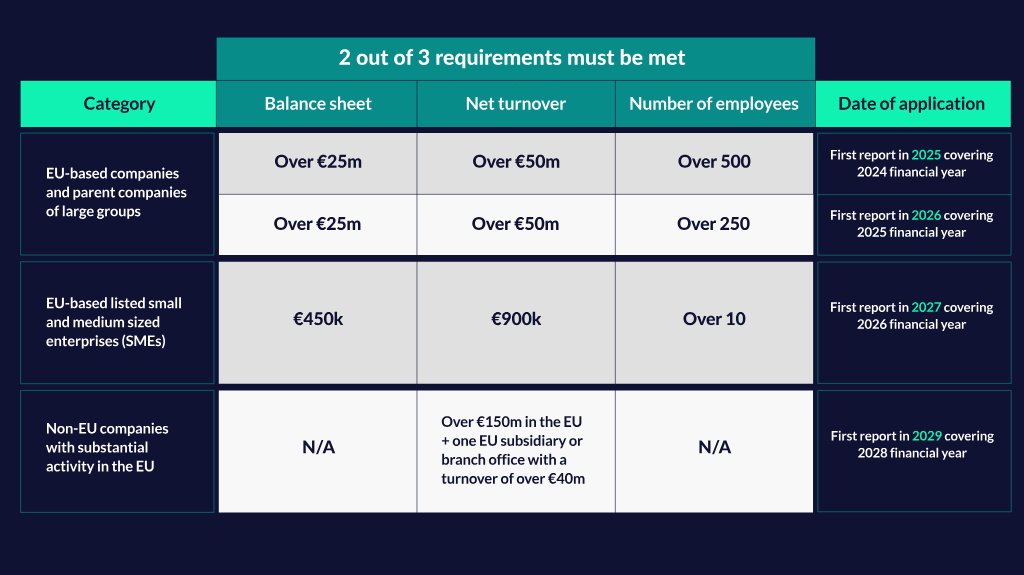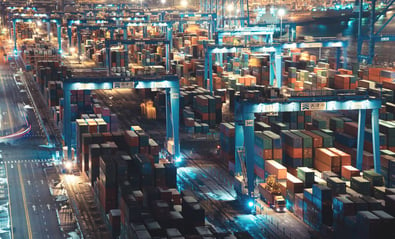
CSRD
Driving transparency and accountability in sustainability
Empowering businesses to meet evolving ESG reporting requirements
The Corporate Sustainability Reporting Directive (CSRD) is a key regulation transforming the sustainability reporting landscape. It requires businesses to disclose their environmental, social and governance (ESG) performance, supporting transparency and accountability while fostering sustainable practices.
LRQA combines decades of expertise, data-driven insights and global presence to help organisations meet the demands of the Corporate Sustainability Reporting Directive (CSRD).
Our end-to-end approach supports every stage of your CSRD journey—from understanding new requirements to delivering actionable insights and verified reporting, to closing your performance gaps. Our approach doesn’t only address compliance but also enhances strategic resilience and reputational value, enabling businesses to unlock sustainable growth.
Partner with us to ensure transparency, build robust business models and management systems, all in line with increasing physical and regulatory sustainability risks.
What is CSRD?
The CSRD is a transformative EU regulation designed to standardise and enhance Corporate sustainability reporting, aiming to align sustainability information with the same status as financial data. It mandates disclosures on ESG impacts, risks, and opportunities, including a 1.5° climate strategy and aspects of human rights and environmental due diligence, to ensure transparency, accountability, and alignment with EU climate goals.
The CSRD is critical for providing stakeholders with reliable ESG data to guide decisions, driving sustainable practices within businesses and ensuring compliance and performance with EU legal frameworks for climate and social responsibility.
The Corporate Sustainability Due Diligence Directive (CSDDD) works in tandem with the CSRD by linking actionable due diligence practices to transparent ESG reporting, ensuring companies take responsibility for their impacts while providing stakeholders with verified information. This dual approach strengthens compliance, builds trust and drives long-term value creation.
The business impact of CSRD: what you need to know
The CSRD fundamentally reshapes how companies approach sustainability reporting, with significant implications:
-
-
- Increased reporting requirements: Companies must provide detailed, standardised ESG disclosures, including a Double Materiality Assessment to identify material topics (e.g., those related to environment, human rights, employee well-being, anti‐corruption, anti‐bribery, governance, etc.) and to define relevant disclosure requirements and data points.
- Enhanced stakeholder transparency: Clear reporting builds trust with investors, consumers and regulators.
- Operational changes: Organisations will need to align processes, data collection and reporting practices with European Sustainability Reporting Standards (ESRS).
- Compliance and risk management: Meeting CSRD standards requires integrating sustainability issues into standard enterprise risk management, ensuring they are mitigated in alignment with the company’s strategy and risk appetite.
- Competitive advantage: Proactive compliance positions businesses as sustainable leaders, attracting investment and consumer loyalty.
-
Who is impacted and when?
The CSRD was adopted in the European Union to enhance transparency in sustainability reporting. The directive applies to companies meeting specific criteria, with phased implementation based on size and turnover ensuring a gradual transition to compliance:

Penalties will differ based on individual member state transpositions. For example, France has been the first to transpose the directive into law, introducing fines of up to €75,000 and the potential of five years imprisonment for directive infringements. In Germany, violations of the CSRD, which are anchored in the German Commercial Code (HGB), can lead to fines of up to €10 million, up to three years imprisonment.
How we can help
We provide a full suite of solutions to support you with every aspect of ESG due diligence.
-
ESG Advisory Services

Identify and reduce risk in your operations and value chains
ESG Advisory Services -
Sustainability and Responsible Sourcing

Improving your ESG credentials and adopt best practices
Sustainability and Responsible Sourcing -
Data and Analytics

LRQA's supply chain management software EiQ helps you monitor and manage your supply chain ESG risks in real-time
EiQ
Related solutions
Access our resources to find out how we partner with you to navigate evolving regulatory requirements
-
Interactive map

Access
Access our supply chain due diligence interactive map for a breakdown of the most significant laws impacting businesses and help your company stay prepared for any active or upcoming legislation.
Learn more -
Double Materiality Analysis guide

Read
The starting point to ensure your non-financial governance and disclosure meets regulatory and financial market requirements.
Learn more -
Your Guide to ESG Verification and Reporting

Read
Enhance your understanding and navigate the complexities of ESG reporting with LRQA's comprehensive guide to corporate ESG verification and reporting.
Learn more -
Navigating scope 3 emissions successfully guide

Read
This guide explores the intricacies of calculating and mitigating scope 3 emissions throughout your supply chain, highlighting the challenges organisations face in understanding and addressing these often-overlooked aspects of their carbon footprint.
Learn more -
Improving CSRD implementation on demand webinar

Watch
Join us for a review of how we have supported clients through double materiality assessments (DMA) and CSRD reporting over the past year.
Watch now
Frequently Asked Questions
What is the purpose of the Corporate Sustainability Reporting Directive (CSRD)?
The CSRD aims to enhance sustainability reporting by requiring companies to disclose their environmental, social and governance (ESG) impacts, risks and opportunities in line with global standards with the same rigor as financial data.
Who is required to comply with CSRD?
The directive applies to large EU companies, listed SMEs and non-EU companies with substantial operations in the EU, based on phased implementation timelines.
What is ESRS and why is it important for CSRD compliance?
ESRS (European Sustainability Reporting Standards) are mandatory guidelines under the CSRD. With more than 1000 data points and disclosure requirements defined, the ESRS standardise how companies report ESG impacts, ensuring consistency, transparency and comparability across industries. Compliance with ESRS is crucial to meet CSRD requirements and demonstrate accountability to stakeholders.
What are the key CSRD reporting requirements?
Businesses must report using the European Sustainability Reporting Standards (ESRS), focusing on material ESG topics, risk management and their alignment with EU sustainability goals.
How can LRQA support CSRD compliance?
LRQA offers services such as gap analysis, readiness assessments, reporting assurance and bespoke advisory support to ensure smooth and effective compliance.
How do CSRD and CSDDD differ and how are they connected?
- CSRD (Corporate Sustainability Reporting Directive): Focuses on mandatory ESG reporting, requiring companies to disclose sustainability impacts, risks, and opportunities, including a 1.5° climate strategy. It also incorporates aspects of human rights and environmental due diligence to align reporting with broader sustainability goals.
- CSDDD (Corporate Sustainability Due Diligence Directive): Focuses on identifying, mitigating, and addressing adverse human rights and environmental impacts within value chains.
The two directives complement each other by linking due diligence practices (CSDDD) with transparent sustainability reporting (CSRD).
Corporate Sustainability Due Diligence Directive (CSDDD)
The EU Corporate Sustainability Due Diligence Directive (CSDDD) is transforming the landscape of responsible business. At LRQA, we provide the expertise and tools to help organisations navigate this regulatory shift. From assessing your supply chain risks to ensuring compliance with ESG (environmental, social, and governance) requirements, we deliver comprehensive end-to-end support empowering businesses to meet the directives demands. Partner with LRQA to ensure you’re prepared for the CSDDD
Read
Find out more
Why work with us?
With over 800 ESG experts globally, we work alongside you to create solutions that address the unique challenges faced by your business. We have deep expertise in existing and forthcoming ESG legislation and are relied on by some of the world’s most recognisable brands. We partner with you to understand your unique challenges, building a proactive and pragmatic approach to ESG due diligence.
Global capability
Our solutions are delivered by a global team of specialists in ESG, supply chain, cybersecurity and compliance. This experience and reach help us understand the risks and opportunities your business faces today, wherever you operate.

We partner with you
To fully understand the challenges you face and identify the right solutions, we form deep partnerships with our clients that enable us to gain a comprehensive understanding of their business risks and opportunities.

A history of firsts
We were the first to receive accreditation to deliver certification services for a range of quality, environmental, and health and safety standards across the globe. And we continue to be instrumental in developing a variety of ESG-related standards and schemes.

Data-driven insights
We invest in digital platforms that give you deep insight into your operations. Our human intelligence is enhanced by extensive analytics capabilities which can be applied to address current and future risks within your operations and supply chain.
